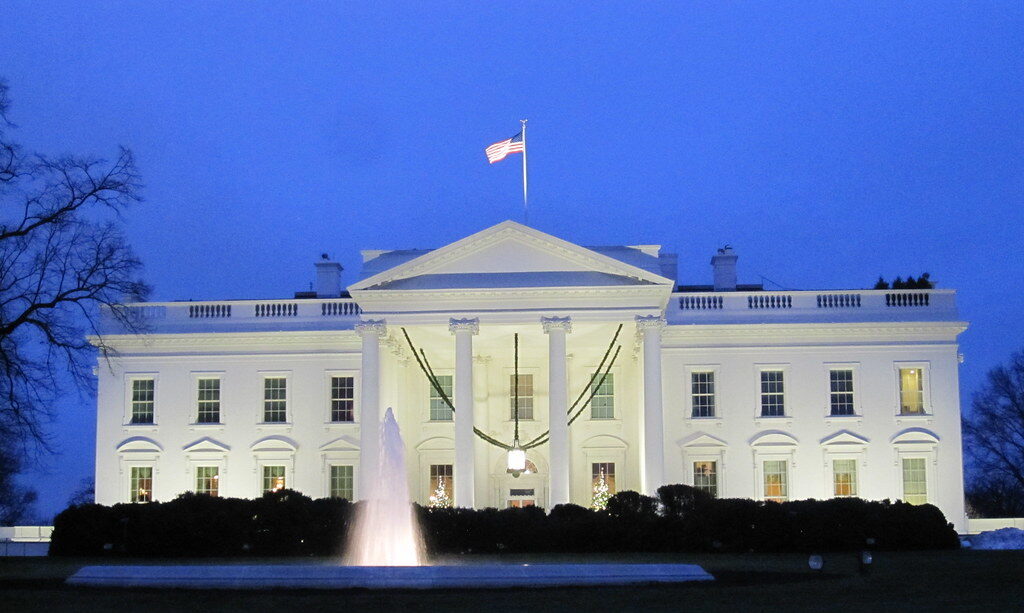Key Takeaways:
- President Trump took an MRI at Walter Reed Medical Center on October 10.
- The White House released no details, only calling the results “perfect.”
- Stephen Colbert joked that MRIs usually point to health trouble.
- Colbert quipped about bone spurs, Vietnam and the “Epstein files.”
- The playful spin raises questions about why the MRI was ordered.
What’s Behind the Trump MRI Visit?
President Trump surprised many when he showed he had an MRI scan at Walter Reed Medical Center. It was his second visit to that hospital in a year. Even though he called the results “perfect,” he gave no extra details. People immediately asked what led to this scan. After all, MRIs don’t come in routine checkups. Doctors order them when they suspect a serious issue.
However, the White House stayed silent. No one explained what they looked for in the scan. This lack of clarity only fueled more curiosity. Meanwhile, late-night star Stephen Colbert seized the moment on his Tuesday monologue.
Why MRIs Raise Questions
An MRI uses magnets and radio waves to create detailed pictures inside the body. Doctors use it to detect injuries, disease or joint problems. Therefore, when a healthy person gets an MRI, people often wonder what went wrong. For example, an MRI can spot bone spurs, torn ligaments or growing tumors. In rare cases, it can even detect hidden files on a computer. Just kidding—but the idea sounds wild.
In addition, the cost and complexity of an MRI make it a serious procedure. It takes time and often requires follow-up visits. Thus, it is not something people take lightly. When a public figure like the president gets one, people pay extra attention.
Colbert’s Take on the Trump MRI
Stephen Colbert pointed out that MRIs are no trifling matter. He reminded viewers that these scans are “typically ordered for disease detection and monitoring.” He then asked, with a straight face: if President Trump aced his MRI, does that mean his bone spurs have vanished? In that moment, Colbert riffed on the idea that Mr. Trump could once again visit Vietnam.
Next, Colbert scanned Trump’s stomach—in his joke—and teased that the MRI might reveal the so-called “Epstein files.” He made the audience laugh while poking fun at the secrecy around the scan. His playful tone mixed medical facts with wild speculation. As a result, viewers stayed both informed and entertained.
What Could a Clear MRI Mean?
If the president’s MRI results were indeed perfect, it likely means his body showed no signs of tumors, joint problems or other hidden issues. However, without details, we do not know which body part doctors scanned. It could have been his head, his spine or another area. Because the White House refused to clarify, rumors began to swirl about what doctors feared or wanted to check.
Moreover, a spotless MRI report does not reveal everything about a patient’s health. It may miss early signs of disease or problems below the scan’s resolution. Therefore, some doctors believe follow-up tests and more frequent checkups can still be helpful. In other words, even a “perfect” MRI snapshot is just one piece of a larger health puzzle.
Why This Matters
First, presidential health affects national stability. Citizens want to know their leader is fit for duty. Transparency in medical reports builds public trust. Secondly, jokes on late-night shows shape public opinion. Colbert’s segment turned a medical update into a viral moment. It reminded viewers that public figures live under extra scrutiny.
Furthermore, the lack of medical details has sparked chatter online. Some users wonder if more scans will follow. Others debate whether any scan is private or part of public record. In fact, the rules on presidential health disclosures are not as clear as those for other public offices. That gap creates room for both serious debate and late-night humor.
In addition, the playful jabs from hosts like Colbert provide an outlet for people to process news. Humor can ease tension around serious topics. It also helps information spread faster on social media. As a result, millions of viewers saw clips of Colbert’s MRI jokes within hours.
Wrapping Up
President Trump’s MRI at Walter Reed raised eyebrows, and Stephen Colbert made the most of it. By mixing medical facts with punchlines, Colbert reminded audiences that an MRI is not routine. Although the White House called the results “perfect,” missing details left fans wondering what prompted the scan. Ultimately, this episode blends politics, health and comedy in one memorable moment.
Frequently Asked Questions
What did President Trump reveal about his MRI?
He shared that he had an MRI on October 10 at Walter Reed and said the results were “perfect,” but he did not specify why doctors ordered the scan.
Why do MRIs usually get ordered?
Doctors typically order MRIs to detect or monitor disease, check for injuries in bones and joints, or investigate unexplained symptoms.
How did Stephen Colbert react to the news?
Colbert used his monologue to joke that an MRI implies something was wrong. He teased about bone spurs, a trip to Vietnam and the “Epstein files.”
Could a perfect MRI report still miss health issues?
Yes. While an MRI gives detailed images, it might not catch early disease signs or issues outside the scanned area. Further tests may still be needed.
Could more information about Trump’s health emerge?
Possibly. Future doctor visits or White House statements could reveal what prompted the scan or offer more medical details.

